What does music mean to you?
Music is not a thing/aspect as such. It has no boundaries. For instance, when you break down the word Sangeeth (music in Hindi), it has three parts - San, Gee and Th. When you take San off Sangeeth, Geeth (song in Hindi) remains, and when you take Th off Sangeeth, you have Sangee (companion in Hindi) left, and when you take Gee off, then you have Santh (saint/tranquil in Hindi) remaining... So you see, Sangeeth essentially means having a companion, having someone alongside you... Music for me is being one’s own companion, meeting oneself, being with oneself. And being one’s own companion means to meet that voice of consciousness that is present in each and every human being. That voice has no boundaries; it breaks barriers of caste, creed, religion, gender, age, and nationality. Now whether we choose to express that voice softly or loudly or in a tune or in any other way, that really depends on the feeling within the individual expressing it. People, depending on their education and understanding, have given music many labels, they call something Aalaap, they call something Shastriya Sangeeth, they call something a Raag and something else a Taal. Of course there are plenty of ways to express music, but music cannot be bound. To listen to the voice within oneself, and to express that voice, that is music, and each one can express it in the best way known to him. It is this universal voice that joins one human being to another.
So does that mean that anyone can sing?
Yes, absolutely! I think anybody can sing. Music is for everyone, and every single human being is attached to music in a deep way. Our feelings are our inner rhythm, and words are a way for us to express our deepest feelings, and through words we come closer to each other, and share and solve our greatest problems.
Tell us about that first instance when you heard that voice inside yourself?
Honestly, I never even imagined that I could sing. I do not belong to a family of musicians nor have I learnt music formally. But I was attracted to the tambura; I began to learn the tambura and to sing a little. In fact I began to sing only because I was told that I will be able to learn the instrument faster if I did. Eventually, I began to learn that an integral aspect of singing is also listening. Years ago, when I sang Kabir’s ‘Koi Sunta Hai Guru Gyani, Gagan me Aawaaz Ho Rahi Hai Jheeni Jheeni,’ for the first time on Guru Poornima, a Guru who was present there told me, “Don’t just sing it, listen to it.” I think that was the moment. And I realised that singing is also about listening, and that is a capacity that all of us have. I believe that music is powerful and can remove all barriers between one heart and another. Through music, one can experience God. Music can help one meet his own soul and thereby satisfy its longing. I don’t believe that only people who have studied music and who have the technical knowledge of music can experience its power... Music is about feeling deeply... That is what it is...
Listen to ‘Koi Sunta Hai’ by Prahlad Tipanya

You seem to have touched the divine through your music...
Oh yes! Music is god; they are not different. God is everywhere, in everyone, in everything.
What is your personal relationship with god? Do you see him as a parent, a friend, a mentor, a beloved, or a Guru?
You see, we cannot really split god into forms or roles like that. He is beyond that. He is far beyond that. Kabir in many of his poems has expressed that god is the one who is present in every particle in nature, in the trees and the ants, in the man and the woman, alike. That is the message of Kabir.
How did you first encounter Kabir?
I met Kabir first when I was in school. We had to learn Kabir’s poems as part of our syllabus. At that point, I studied them only to pass my exams. Later on, when I heard a group of people singing Bhajans (devotional songs in Hindi) of Kabir on a tambura, I was quite surprised, because I always thought Kabir was only a poet. That group was not very educated, and could not clarify my question; they told me that they were only singing what they learnt from their forefathers. I was deeply touched by that experience somehow.
You have never met Kabir, but have experienced him. What is he like?
Kabir is a presence. He is present in every soul. We have described Kabir through music and lyrics, but he cannot really be defined. He is beyond form, religion, caste, creed and gender. If we attempt to bind him to one of these, then that is not Kabir... The essence is lost. Kabir is referred to as the Guru (teacher in Hindi) of the Hindus, and the Peer (companion in Hindi) of Muslims. A Peer is someone who tries to help ward off another’s sorrows, the one who loses himself but does not allow another to lose, the one who allows himself to be destroyed but does not allow the same for another, the one who becomes sorrowful himself but does not give sorrow to another... And that is Kabir. Kabir is universal. His presence was, is and always will be.
We have described Kabir through music and lyrics, but he cannot really be defined. He is beyond form, religion, caste, creed and gender. If we attempt to bind him to one of these, then that is not Kabir... The essence is lost
You have sung Kabir in many different parts of the world. How do people in the West relate to him and his teachings?
We usually sing in Hindi and Malwi, and I am not very well-versed with English, but in 2003 when we toured the USA, people told us that they hadn’t heard anything like this in decades, and although they did not understand the literal meaning of the lyrics, they were deeply moved by something. So you see, Kabir is something to be felt from within, and is independent of language or lyrics. To feel him, we must go within and meet ourselves. It is my faith and belief that through Kabir’s teachings, all the barriers and hatred that now stands between human beings can be dissolved.
What is the one message of Kabir that you would like to spread to the world?
You see, when we merely talk, we cannot be Kabir. We need to practically implement his teachings, his essence, in our lives. Kabir did not just write these poems, he lived his message. I know that we are all too entangled with the things of this world. We have too many worldly ties to pay attention to, and we are bound to face challenges in trying to follow this path. To detach ourselves will surely be painstaking. But it is not impossible, anyone can do it, and anything can be done... We just have to stick to the path and be true to it. And then somewhere, sometime, we will be able to meet Kabir...
Interviewed by Payal H Chhabria
4 comments Comments
SIGN UP TO RECEIVE OUR WEEKLY NEWSLETTER IN YOUR INBOX




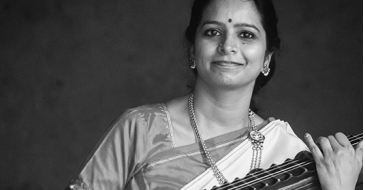
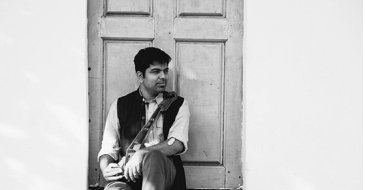

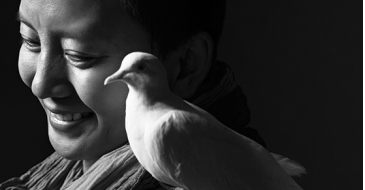
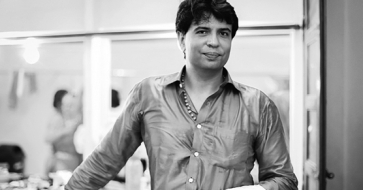
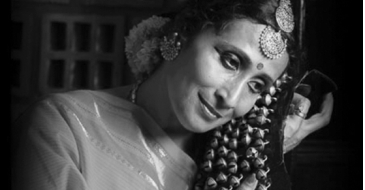
Sunil Tripathi
May 04, 2017
Ramesh
May 03, 2017
Kartik
April 25, 2017
dinesh
April 20, 2017